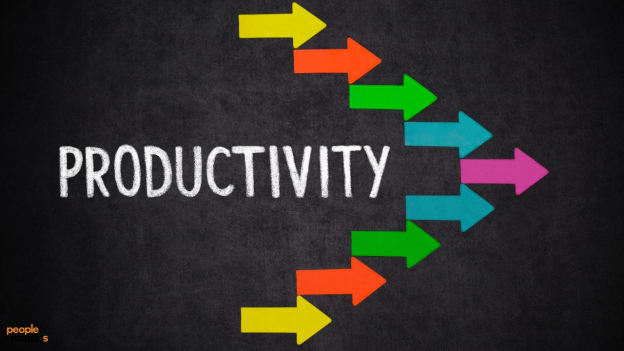How AI can help boost workforce productivity

The quest for improved workforce productivity has become more complex in the wake of the pandemic.
Artificial intelligence, however, emerges as a beacon of hope, offering transformative data-driven insights to optimise productivity in the most cost-efficient ways.
According to a McKinsey study, the last great productivity acceleration the world saw was between 1990 and 2000. Organisations that saw the highest productivity boost were the ones that invested in technology, implemented management changes, and enhanced their current offerings.
Fast forward to today, productivity continues to be low. In the US, labour productivity only increased 0.3% in the first quarter of 2024, following increases of 3.3%, 4.6%, and 3.5% in the previous quarters.
Top reasons for today’s low workforce productivity include macroeconomic headwinds, demographic shifts, and changes in employee preferences, data from the same McKinsey study showed.
In this volatile business environment, AI is proving to be one of the most reliable allies of business leaders in boosting workforce productivity by bringing in levelled-up data and insights capabilities.
Read More: Redefining productivity in an age of uncertainty
How AI boosts productivity in simpler ways
The advent of AI-powered tools has ushered in a transformative era for productivity management, particularly for remote and hybrid teams.
These intelligent solutions leverage machine learning and data analytics to monitor, analyse, and optimise various aspects of work, providing businesses with unprecedented visibility into employee performance and engagement.
AI-powered productivity platforms can track a myriad of work-related metrics, including:
Time tracking
AI can accurately record the time employees spend on specific tasks, projects, or applications, offering insights into work patterns and potential areas for improvement.
Task completion
AI can monitor the progress of tasks and projects, flagging potential bottlenecks or delays, and facilitating timely interventions.
Communication and collaboration
AI can analyse communication patterns and collaboration dynamics within teams, identifying potential communication gaps or opportunities to enhance teamwork.
Engagement and well-being
AI can track employee engagement levels through various indicators, such as keyboard activity, mouse movements, and application usage, enabling proactive interventions to address potential burnout or disengagement.
By aggregating and analysing this data, AI can generate valuable insights that empower businesses to make informed decisions about resource allocation, workload distribution, and process optimisation.
Moreover, AI can provide personalised recommendations to employees, suggesting strategies to improve focus, enhance time management, and achieve better work-life balance.
Read More: AI in the workplace goes beyond productivity
Employee productivity in focus
The benefits extend beyond organisational efficiency. AI also empowers employees for success. Personalised insights and recommendations can help individuals identify areas for improvement and develop strategies to enhance their productivity. Additionally, AI-powered learning platforms can provide tailored development opportunities, enabling employees to acquire new skills and stay ahead of the curve.
Here are some key ways AI can be leveraged to boost individual productivity:
Personalised productivity insights
AI can analyse an individual's work patterns, identifying peak performance times, common distractions, and areas where they might be struggling. These insights can then be used to create personalised recommendations, such as suggesting optimal work schedules, identifying focus-boosting techniques, or recommending time management tools.
Skill development and learning
AI-powered learning platforms can provide personalised training and development opportunities tailored to individual needs and learning styles. This can help employees acquire new skills, stay updated on industry trends, and advance their careers.
Intelligent task management
AI can help prioritise tasks, automate routine workflows, and suggest optimal task sequences based on individual preferences and deadlines. This can reduce cognitive overload and free up mental space for more strategic and creative work.
Collaboration and knowledge sharing
AI can facilitate seamless collaboration and knowledge sharing among team members, even in remote or hybrid work environments. AI-powered tools can connect employees with relevant expertise, suggest collaboration opportunities, and automate knowledge capture and dissemination.
Well-being and work-life balance
AI can monitor employee well-being and provide timely interventions to prevent burnout and promote work-life balance. AI-powered tools can track stress levels, suggest mindfulness exercises, and encourage healthy work habits.
Read More: Think your job is pointless? You’re not alone
Smashing barriers to AI adoption
While AI holds immense potential to transform workforce productivity, its adoption is not without challenges. Organisations must navigate a range of obstacles to successfully implement and integrate AI-powered solutions into their operations.
One prominent challenge is the cost of implementation. The initial investment in AI technology, infrastructure, and training can be significant, particularly for smaller businesses.
Forward-thinking leaders, however, explore cloud-based AI solutions from trusted providers. Using pay-as-you-go models is proving to be an effective way of reducing upfront investment costs. There are also open-source AI tools that can be used to lower costs.
Another challenge is the need for skilled personnel. Implementing and managing AI-powered productivity tools require specialised skills and expertise. Companies may need to invest in training existing staff or hire new talent with AI capabilities. Partnering with AI solution providers or consultants can also be a viable option to bridge the skills gap.
Data quality and integration also pose a significant challenge. AI algorithms rely on accurate and comprehensive data to generate meaningful insights. However, organisations often grapple with disparate data sources, incomplete or inaccurate data, and challenges in integrating data across different systems.
Investing in data management and governance practices, along with adopting robust data integration tools, can help ensure data quality and facilitate seamless AI implementation.
Adopting AI-powered solutions will be challenging for many companies. But investing in the right technologies will always pay off. If you’re trying to start your own AI adoption journey, it is best to have field experts to guide you in selecting the best solutions.















